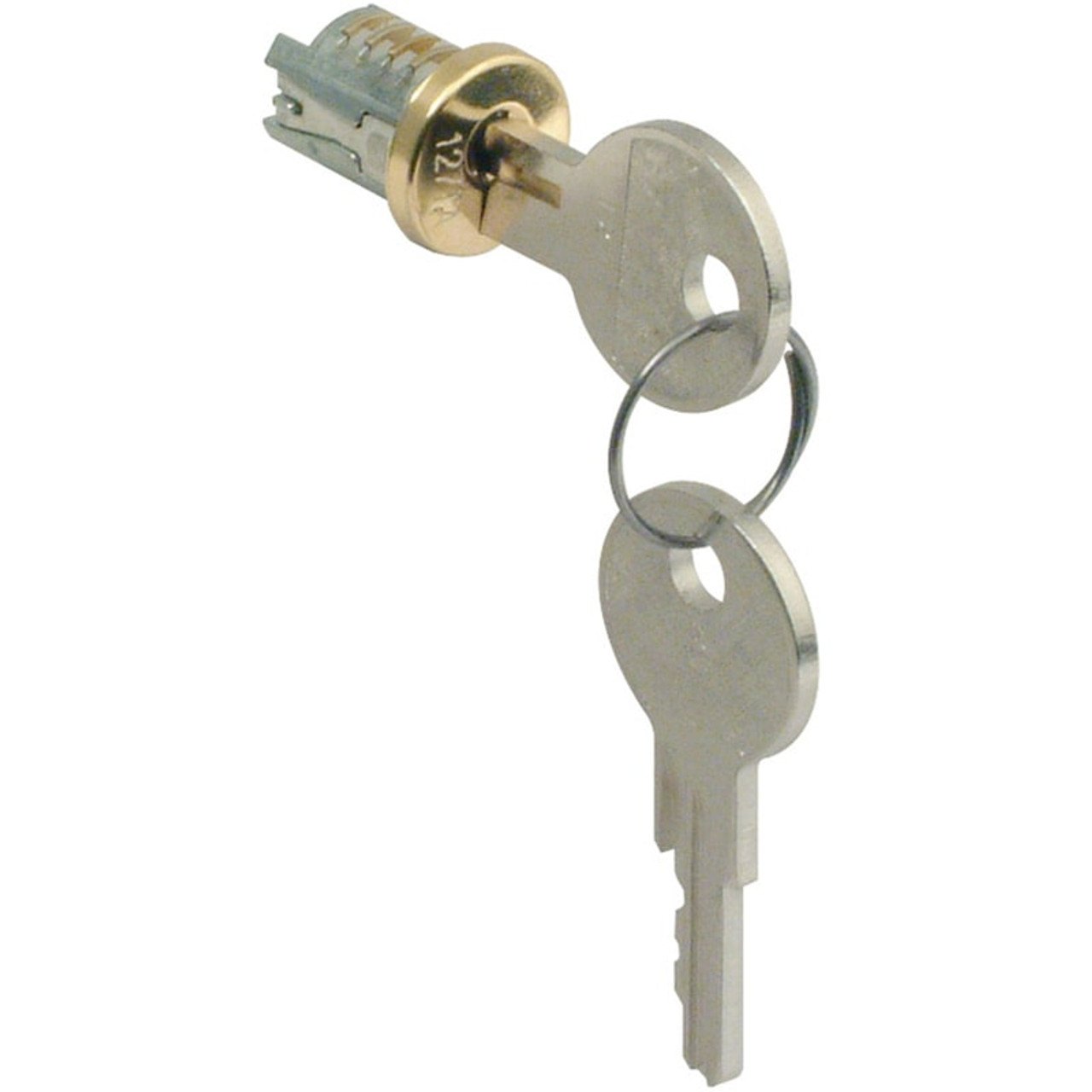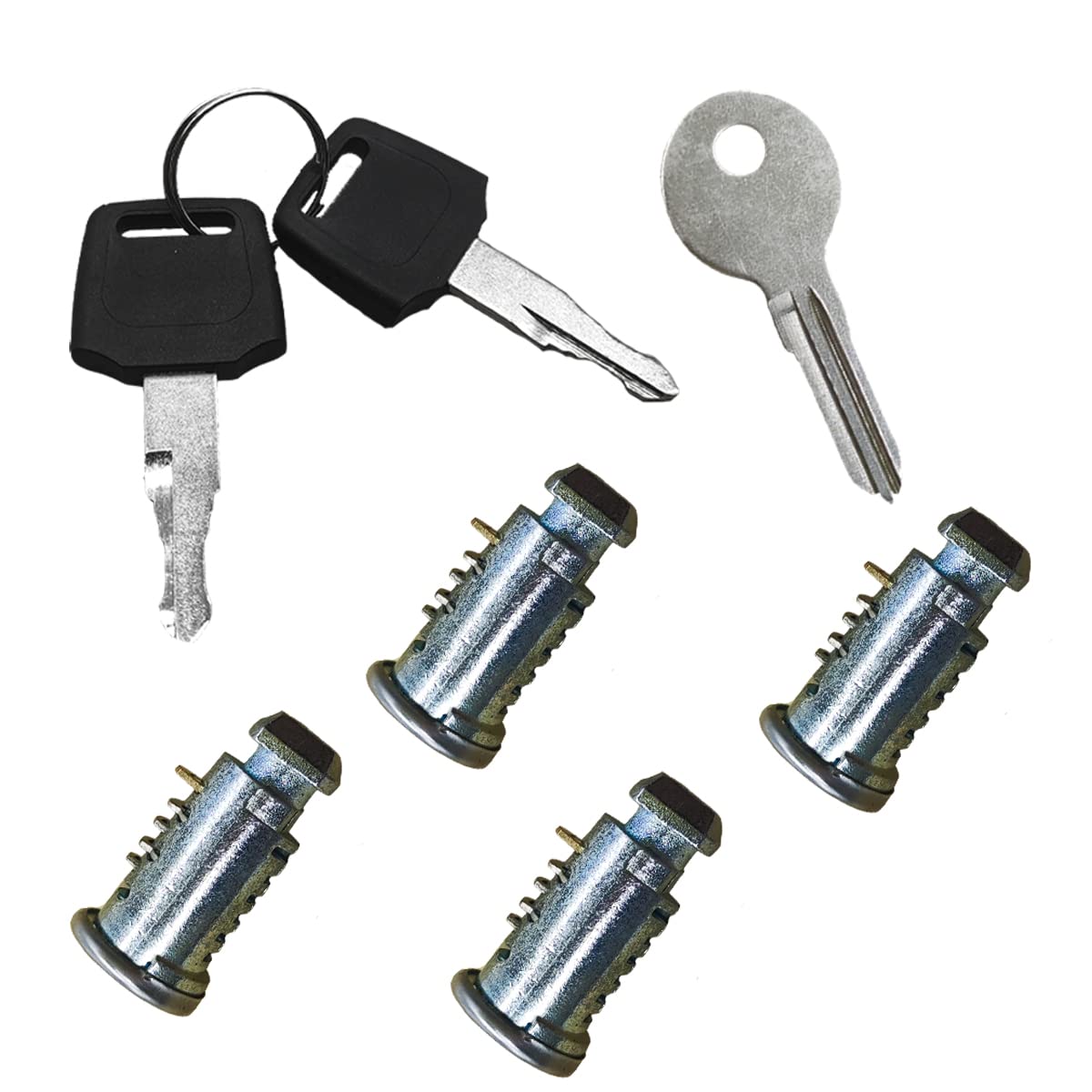A lock core key, often known as a master key, is a specialized tool for unlocking multiple locks within a specific system. It simplifies access control, offering convenience and flexibility. If you’re wondering where to buy one, lockcomponent.com is a reliable online source. This website provides a user-friendly platform for browsing and purchasing lock core keys suitable for various applications. In this guide, we’ll explore what a lock core key is, its functions, and why lockcomponent.com is a great option for acquiring one.
What is a lock core key?
A lock core key, often called a “master key,” opens multiple locks in a system. It simplifies access control, using a single key for convenience. Common in commercial places, like offices and hotels, with varying access levels. The system has key hierarchy, higher-level keys open more locks. This tech streamlines security and ensures authorized access.

How do you use a lock core key?
Using a lock core key, also known as a master key, involves several steps, and it’s essential to understand the process thoroughly. Here’s a more detailed explanation:
Key Identification: Start by ensuring you have the correct lock core key for the system you wish to access. These keys are typically labeled or color-coded to match specific groups of locks.
Key Insertion: Locate the keyway on the lock you want to open. The keyway is the slot or opening where you insert the key. Carefully insert the lock core key into the keyway. Be sure it goes all the way in but avoid forcing it.
Turning the Key: Gently turn the key in the direction required to unlock the lock. The direction depends on the lock’s design, so you might need to turn it clockwise or counterclockwise. As you turn the key, pay attention to how it feels; you should feel the pins inside the lock aligning with the key’s unique pattern.
Applying Pressure: As you turn the key, apply steady and consistent pressure. Avoid using excessive force, as this can damage the lock or the key itself. It’s essential to be patient and gentle during this process.
Unlocking the Lock: When the pins inside the lock cylinder align correctly with the key’s pattern, the lock will release, and you’ll be able to turn the key fully to open the lock. This turning motion disengages the lock mechanism, allowing the door or access point to open.
Re-Locking: After you’ve unlocked the lock and gained access, remember to secure it again. To do this, simply turn the key in the opposite direction, aligning the pins once more to engage the lock. This action ensures you lock the door securely when you finish.
Key Removal: Carefully remove the lock core key from the keyway once the lock is secure again.
Safe Storage: Always store your lock core key in a secure place. These keys grant access to multiple locks, so losing one or allowing unauthorized access can compromise security.
Responsible Use: Use lock core keys only for authorized purposes. Avoid lending your key to individuals who should not have access to the locks it opens.
Maintenance: Periodically inspect and clean your lock core key to ensure it operates smoothly. Dirt or debris can hinder its functionality over time.
Expert Assistance: If you encounter any problems with your lock core key or the locks it opens, it’s advisable to seek the help of a locksmith or contact the system administrator for guidance and repairs.
What to consider when choosing a lock core key?
Choosing the right lock core key, also known as a master key, is crucial for effective access control. Here are several factors to consider when making your selection:
Lock Compatibility: The first and foremost consideration is ensuring that the lock core key you choose is compatible with the locks you intend to operate. Locks come in various types and brands, and not all keys are universal.
Security Needs: Assess the level of security required for your premises. High-security lock systems are available, often with restricted keyways, making it difficult for unauthorized individuals to duplicate keys.
Key Hierarchy: In larger or more complex organizations, key hierarchy can be essential. Locksmiths can design master keys to open different levels of access, offering flexibility in managing various areas of your facility.
Number of Locks: Determine how many locks the key needs to operate. Locksmiths design master keys to handle multiple locks, but all these locks must belong to the same keying system.
Key Control Measures: Consider implementing key control measures to track key distribution and usage. This helps ensure that unauthorized copies are not made and enhances security.
Ease of Use: Choose a key that is user-friendly, especially if you plan to use it frequently. Keys should be easy to insert and turn without much effort.
Durability: Manufacturers should use durable materials to make keys that can withstand regular use. Over time, keys can wear down, leading to issues with functionality.
Rekeying Possibility: Some key systems offer the flexibility to rekey locks easily. This can be beneficial if you anticipate the need to change access levels or address security concerns.
Professional Installation: Assess whether your chosen key system requires professional installation. More complex systems may necessitate the expertise of a locksmith or security professional.
Budget: Consider your budget constraints. High-security key systems tend to be more expensive, but they also provide enhanced protection. Balance your security needs with your available budget.
Maintenance: Investigate the maintenance requirements of the key system. Regular servicing may be necessary to ensure the system functions correctly over time.
Local Regulations: Be aware of any local regulations or building codes that may impact your choice of key systems. Compliance is essential to avoid legal issues.
Vendor Reputation: Research the reputation of the vendor or locksmith providing your key system. Choose a trusted source with a history of reliability and quality.
Future Expansion: Plan for future expansion if your facility is likely to grow or your security needs change. Ensure that the chosen key system can accommodate additional locks or modifications.
Emergency Access: Consider how emergency access situations will be handled. Establish protocols for scenarios like lockouts or lost keys to minimize disruptions.

Where to buy a lock core key?
You can purchase a lock core key from various sources, including online retailers like lockcomponent.com. This website offers a wide selection of lock core keys for different systems. To buy a key, simply visit their user-friendly website, browse their catalog, and select the key that matches your needs. They provide detailed product descriptions and often have customer reviews to help you make an informed choice. Once you’ve made your selection, add it to your cart, and proceed to checkout.
